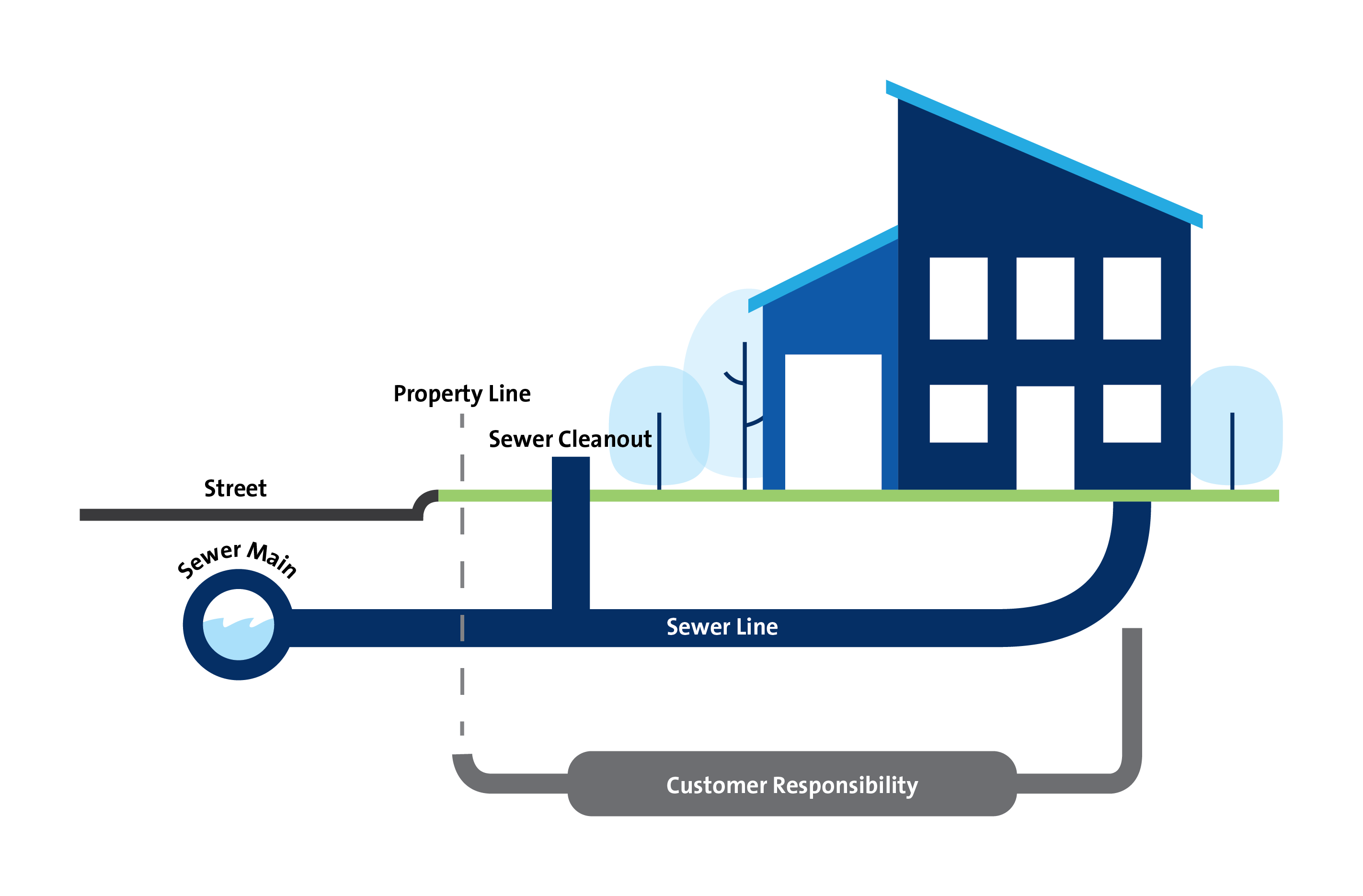Water is one of the most important resources, but it can also be dangerous. Natural and manmade hazards are a part of life, which Liberty Utilities strives to mitigate.
Below you will find water safety and sewer safety information and tips.
Proper Disposal of Chemicals, Medications and Disposables
Chemicals and medications are difficult and costly to remove during the wastewater treatment process. Some of them cannot be removed and end up back in streams and groundwater. It is important to properly dispose of the items below.
Medications:
Unused medications shouldn’t be kept where they might be abused, but flushing them down the drain is not a good option. By flushing them, they dissolve and become very hard to remove from the water, introducing the chemicals back into the environment. They also have the potential to create drug-resistant viruses and bacteria. The FDA recommends crushing unused medications up with small-grained waste and throwing it in the trash.
Household chemicals:
Like medications, these chemicals are very hard to remove during the wastewater treatment process. Many also have the potential to corrode your pipes. Check the instructions on the back of the container to find out how to best dispose of chemicals. Also check with your local county for hazardous chemical collection dates.
Bathroom Wipes:
Bathroom wipes — those thick, moist towelettes — are advertised as flushable and can, in fact, be flushed down the toilet. Once in the sewer system, however, studies have found they don’t break down. Instead they contribute to clogs in the pipes and pumps, requiring costly repairs. Other clogging culprits include baby wipes, paper towels, make-up removing towels, disinfecting wipes, and feminine products. These should all be disposed of in the trash.
Have a kitchen? Then you may need to worry about the F.O.G. F.O.G. stands for FATS, OILS, and GREASE. They hide in many places like baked goods and pastries, lard, butter, cream-based sauces, dairy, and gravy. Oils are fat in its liquid form, found in vegetable oils, margarine, and salad dressing. This also includes motor oil. Greases are made of meat drippings, greasy foods, etc.
FOG stands for FATS, OILS, and GREASE. They hide in many places like baked goods and pastries, lard, butter, cream-based sauces, dairy, and gravy. Oils are fat in its liquid form, found in vegetable oils, margarine, and salad dressing. This also includes motor oil. Greases are made of meat drippings, greasy foods, etc.
Why is F.O.G. bad?
When fats, oils and greases enter the wastewater or septic system, they cool, solidify and stick onto the sides of the pipe. Over time, more layers build until the line is completely blocked, causing backup which can lead to clogged drains and toilets, raw sewage backing up into your home and environment, expensive clean up, repairs and replacements, unpleasant odors and potential public health risks.
What should you do?
Water is one of the most important resources, but it can also be dangerous when treated without respect. Natural and manmade hazards are a part of life, which Liberty Utilities strives to mitigate.
Planning to dig? Call 811.
Did you know it’s the law to make this call? Electric power lines, natural gas pipelines, water pipes, communications lines, and other utility services can be within a few feet of the ground ’s surface. Not knowing where they are can result in personal injury, property damage, and neighborhood service interruptions. Even a small dent or a scrape can cause damage, resulting in a leak or service-wide disruptions.
Fire fighters or police officers are often the first to arrive at a public safety emergency. These first responders are most likely to encounter the potential hazards of isolated flood hazards, road collapse or sewage spills. In an effort to help prepare first responders for situations they may encounter, Liberty Utilities meets and provides local responders with valuable information annually.

Already a Liberty Utilities customer? Create an account and learn about your online payment options.